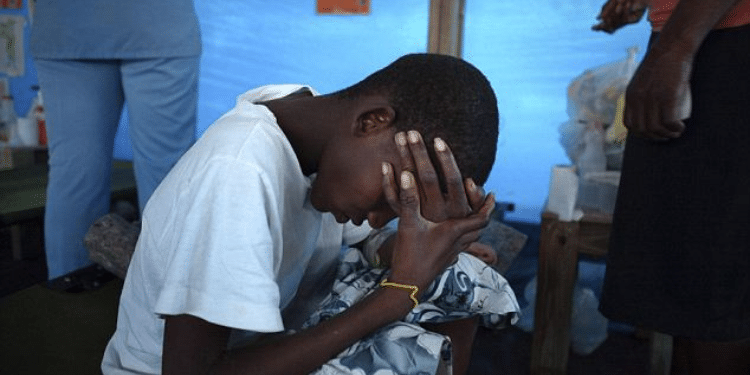A recent study conducted by Amref Health Africa has shed light on the prevalence of mental health issues among Tuberculosis (TB) patients.
Anxiety and depression emerged as the most common mental health challenges faced by TB patients, affecting 66% and 55% of respondents, respectively.
These issues predominantly manifested during the presumptive stage of TB, citing the need for early intervention and support.
Trauma-related disorder (16%), alcoholism (5%), psychosis (3%), drug abuse (1%) and tobacco use (1%) were the other mental health issues cited by TB patients.
Stigma surfaced too as a barrier hindering patients from accessing care, pointing towards the importance of addressing societal attitudes towards TB.

Need for Mental Health Care within TB Treatment Programs
The study conducted across Homa Bay, Busia, and Kakamega Counties among Tuberculosis (TB) patients, indicates a pressing need for integrated mental health care within TB treatment programs.
However, the study unearthed concerning gaps in healthcare provision, particularly regarding the management of TB patients’ mental health.
A substantial proportion of healthcare workers expressed inadequacy in handling mental health issues, potentially compromising the quality of care delivered to TB patients.
“Furthermore, the study established that the majority of Health Care Workers (HCWs) were not prepared to handle TB patients’ mental issues, a gap that is likely to impact the quality-of-care TB patients receive,” noted the study.
Also Read: Reasons for Poor Performance in Nairobi Children -Study
TB Burden in Kenya
The burden of TB and mental health issues intertwines, increasing health disparities and straining the already vulnerable populations, especially in low and middle-income countries like Kenya.
As of 2016, Kenya reported a TB burden of 558 cases per 100,000 population, with individuals living with HIV being particularly susceptible.
According to the study, the intersection of TB and mental health points to the interconnectedness of physical and psychological well-being, necessitating a holistic approach to healthcare delivery.
Despite lack of comprehensive data on mental health prevalence in Kenya, reports indicate a large proportion of individuals suffering from mental health issues.
“While data on the prevalence of Mental health issues in Kenya is inadequate, a report by the Kenya National Commission on Human Rights (KNHCR) in 2011 estimated that up to 25% of outpatients and 40% of inpatients in health facilities will suffer from a mental health issue,” reads the study.
Remedies for TB Patients
Addressing the needs of TB patients requires a concerted effort from healthcare systems, policymakers, and communities alike.
The study advocates for the prioritization of mental health integration within TB programs, which includes early screening, tailored interventions, and support networks.
Also Read: Why Nairobi Residents Are Contracting Diseases from Animals -Study
Sensitizing communities, establishing counseling centers, and integrating mental health into TB case management processes are identified as steps towards fostering health-seeking behavior and reducing stigma.
Furthermore, fostering a supportive environment within healthcare settings, characterized by empathy, competency, and cultural sensitivity, is paramount in optimizing treatment outcomes and ensuring the well-being of TB patients.
“Findings show that most TB patients received support from treatment centers (53%) and their families (52%). Support from CHVs came third and was mentioned by 33% of total respondents while 21% mentioned counselling centers and 15% stated support groups,”noted the study.
Do you want to be part of an updated community without the interruptions of unwanted messages? Click the link below and join our WhatsApp Channel!
https://whatsapp.com/channel/0029VaB3k54HltYFiQ1f2i2C











































































